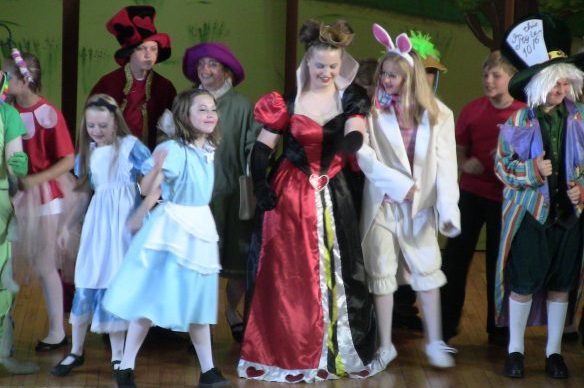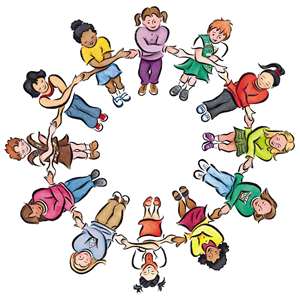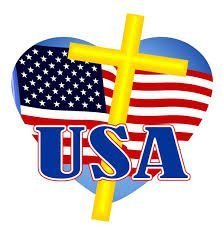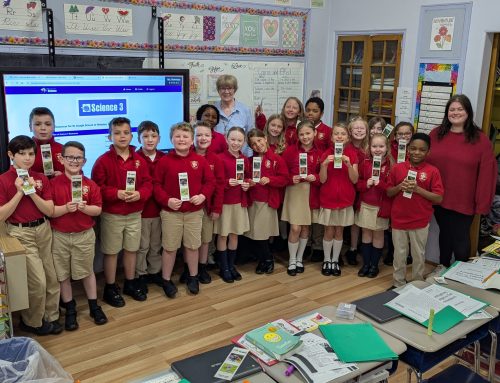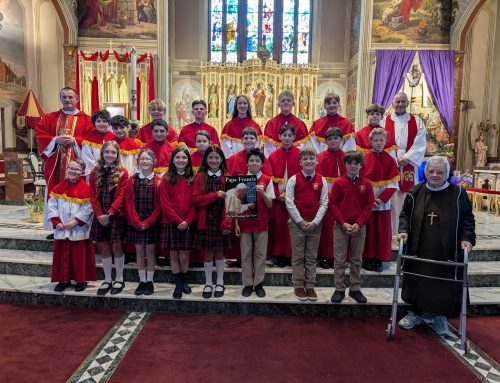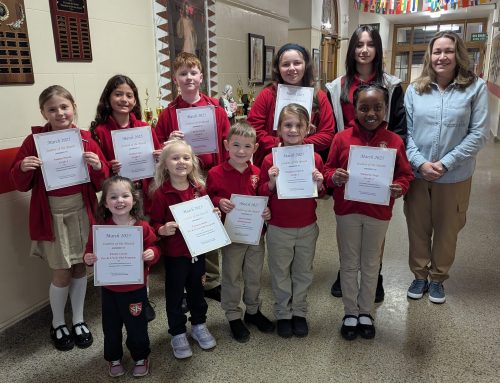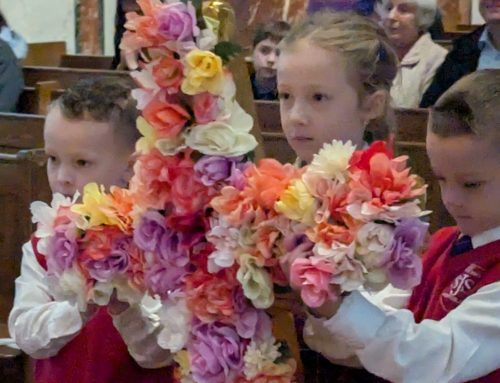As we reflect on the recent observance of Memorial Day and prepare to celebrate Independence Day on July 4th, it is worth pausing to ponder the meaning of patriotism. Unfortunately, the word “patriotism” is sometimes misused and over-invoked to the point that one may say it has become diluted or devalued. It would be useful, therefore, to unpack the concept of “patriotism” and reflect on its real meaning.
The word “patriotism” comes from the Latin word “patria,” which means homeland. The root word is “pater,” meaning “father.” There is an analogous relation between one’s homeland and one’s father. According to the teaching of Saint John Paul II, patriotism is connected with the Commandment of the Decalogue to love your father and your mother. The heritage which we call the “fatherland” or “motherland” comes to us through our parents and requires the duty of “pietas,” which according to the ancient Romans implied filial affection, respect, and reverential love.
True patriotism means something totally different than blind nationalism and chauvinism. Excessive nationalism is the self-centered love for one’s country with an overpowering, aggressive attitude toward others. It is also an outlook on life, an ideology. Chauvinism is the exaggerated attachment to one’s country with disregard for others. Patriotism, on the other hand, has an emotional connotation and means loving and having a healthy sense of pride toward the homeland – especially, its history, tradition, language, common achievements, and so forth. It is that love which motivates a person to be inspired and to do extraordinary things when the common good is in danger. The history of our country shaped the identity of the American Nation. Monumental achievements like the Constitution and Bill of Rights, national heroes such as George Washington, Thomas Jefferson, Abraham Lincoln, and personalities such as Alexander Hamilton and Benjamin Franklin, made a lasting imprint on the common psyche of our society.
Unfortunately in our country, as well as many others, egocentrism, exaggerated individualism, and disregard for Judeo-Christian tradition are becoming part of everyday life. This callous disregard for the common good is a sharp thorn in the lives of the majority of Americans.
Many place patriotism at the top of the hierarchy of American values because it determines our identity. Patriotism is personified in national symbols, such as the American flag, the national anthem, the Office of the President, the legislatures, and the courts—to name a few. These icons are the living embodiment of our nation’s spirit, values, ideas and character.
The present reality of our country with its demonstrations, violence, intimidation and mutual distrust threatens the foundation of our country, our national ethos, and degenerates the true spirit of patriotism. It appears that the core force behind our nation’s cultural turmoil which distorts our understanding of the word patriotism is a misunderstanding of the word freedom. The concept of freedom has not only a variety of meanings but became a slogan repeated in many circumstances of life.
The purpose of freedom when properly understood, always leads to full realization of the human person, to his greatness, to his fidelity of great ideals. If freedom is disassociated from the dignity of the human being, from the goodness, altruism, and ability to make sacrifices, then it leads to confusion, enslavement, and dysfunction. We cannot follow the noisy ideas and empty slogans. Therefore, on a daily basis, we need to reflect on life, on the system of values, and return to the core source where the word freedom is defined and learned. The school of true freedom and patriotism is the family because a family has to be built by love. The family is the environment where every member rediscovers the flame of love and affirmation for his own life and is accompanied with the sense of responsibility for its future. It is the family which carries, in our time, the overall responsibility of the ontological state of our nation and the level of patriotism in our homeland.
President Kennedy once said, “Unless there is a most intimate association between those who look to the far horizons and those who deal with daily problems, we shall not pass through these stormy times with success”. When we come together, to support our fatherland and each other with love, respect, and clear-minded loyalty, and not fear, hate and small-minded hostility that is when we will find what it truly means to be patriotic. We have to pray and trust in God that even in the center of darkness of human absurdities, the new dawn of hope forces its way which will make polarized society one family again. Perhaps this is the time to forget division, party lines and rediscover the true meaning of the first words of our Constitution—“We The People”.
Msgr. Anthony Czarnecki
Rector of St. Joseph Basilica
Webster, Ma.
Published in the Webster Times, Beyond the Pews, 6/23/2017




